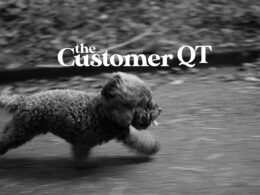Leading brands like Alibaba will come to differentiate with ethical marketing to build long-term value off the back of the COVID-19 crisis, according to Forrester.
“Fast forward to the last half of 2020 and we see COVID-19 is accelerating the trend,” Forrester senior analyst, Xiaofeng Wang, said at last week’s Forrester Asia-Pacific Summit. “As a result, more and more brands (in Asia-Pacific, and across the world) are embracing ethical marketing practice.” Wang explained companies that adopt ethical marketing don’t just focus on how their products and services can benefit their customers, but also how they benefit socially responsible or environmental causes.
“There are two types of ethical marketing initiatives: The first one is to support social causes, such as the recent strike major brands like Adidas and Unilever participated in to boycott Facebook advertising because they believe Facebook isn’t doing a good job on his platform,” Wang said.
The second type of is environmental causes, such as Patagonia’s ‘Don’t buy this jacket’ campaign that is different from most retailers and brands. “During shopping festivals like Black Friday, Patagonia actually asked consumers to buy less and to reduce the environmental footprint,” she continued. “Brands like Patagonia, Unilever and Adidas embrace ethical marketing because they are reacting to the rising customer demand.”
In the Asia-Pacific region, the values consumers believe are most important in terms of adapting their purchase decision includes environmental protection, the company’s commitment to customer data privacy and giving back to the local community.
Done in the right way, ethical marketing will bring long-term value to brands, according to Wang. “Research has found a positive correlation between the key ethical marketing elements and consumer brand relationship of quality, as well as perceived product quality and, together, contribute a positive impact to brand loyalty.”
The 4 elements and values of ethical marketing
The ethical marketing mix consists of the four key elements marketers should be well familiar with – product, price, place and promotion. “The ethical marketing-related element with product is to avoid inconsistency in products,” Wang said.
She cited the example of global cosmetics brand, Estee Lauder, that was using different product ingredients for products in the US and China and found itself on the receiving end of a consumer backlash and demands to make the products consistent across both markets.
The second element of the mix is price and the need to have transparent pricing. Wang explained that ethical companies think about the short-term revenue as valuable as the long-term value they can bring to customers. Citing the example of Netflix and its transparent pricing practices that remind subscribers when they’re subscription is due to renew, which gives people a chance to end their subscription and costs the streaming platform’s bottom line, but builds trust in the business and value to it as a brand.
“Netflix provides a very clear pricing statement on its website and an email to customers on how much and exactly when they will charge customers. In addition, it sends an email reminder three days before the trial period, and that actually costs Netflix $15 million a year. But it’s worth it,” she said.
The third element is place or channel distribution. “It’s important to avoid channel discrimination. Examples like shelfing lower quality items in outlet shops are to be avoided. “It comes out of the short term-business revenue motivation. But if companies adopt ethical marketing, they would think differently,” Wang said.
The final element in the mix is promotion. To do ethical marketing right, it’s important to avoid promotion without consent. Not automatically opting customers into things, for example, but requesting their consent and being transparent about adding them into promotional and marketing communications.
Forrester research, Wang said in recapping, has found four shared values of companies exhibiting ethical marketing: Transparent pricing, socially responsible, fairness and honest to their brand values and support customers who like those values.
To begin the process of integrating ethical marketing practices, Wang said it’s first about defining what is ethical and how it aligns with your brand values. Next, it’s time to then decide on which aspect it’s important to focus on (product, price, promotion). Finally, it’s time to take action and that means deciding which part of the operation and which teams will be responsible for the ethical marketing.
“And last but not least, you need to complete a cost-benefit analysis for your ethical marketing strategy before you jump both feet,” she added.
This article originally appeared in CMO.au Photo by Dan Meyers on Unsplash.











